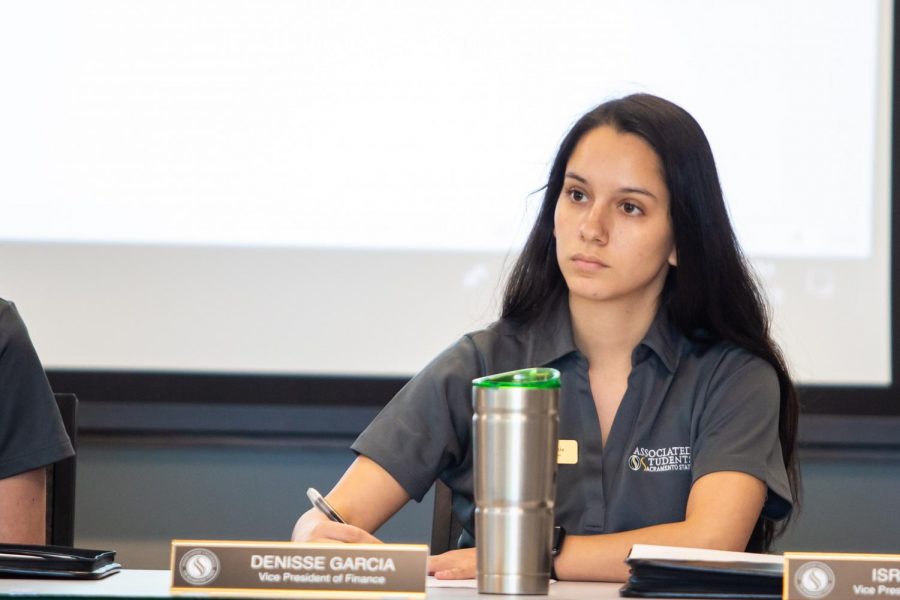Your donation will support the student journalists of Sacramento State University. Your contribution will allow us to purchase equipment and cover our annual website hosting costs.
Sac State student, Denisse Garcia, ASI Vice President of Finance, takes notes during an ASI meeting Wednesday, Oct. 4. Garcia is a DACA recipient who is currently studying business.
Dreamer Denisse Garcia, 21. Born in Tepic, Nayarit, Mexico.
October 11, 2019
When Denisse Garcia heard about Trump’s decision to end DACA, she had a breakdown.
Suddenly, the stability Garcia worked so hard toward was in danger.
“I realized everything was flipping on me,” Garcia said. “I thought I had my life figured out, then out of nowhere, nothing in my life is secure.”
The road to DACA wasn’t easy for Garcia. As she began her college career at Sac State, she had to seek extensive legal support.
“My first couple times, I had to pay lawyers,” Garcia said. “My parents wanted to make sure everything was right and that I wouldn’t get denied.”
Garcia said when she first applied for DACA, she never received a follow-up on her case. After making a report, she was told her application was considered lost or stolen and was still asked to reapply and pay the $500 fee again.
“It was over $1,600 that I needed to pay in over two years,” Garcia said.
Garcia was referred to California Congresswoman Doris Matsui’s office by the DRC. There, she was connected with a staff member regarding her DACA service cards.
“When you know who to contact, then they are able to help you,” Garcia said. “Like when Matsui’s office called on my behalf, it was within a few days that things happened rather than months and months.”
Even with proper DACA registration, Garcia said she still struggled with financial instability as she did not have permission to work.
“Everything I did, I had to do on my own like every other first-generation student,” Garcia said.
Although she received several scholarships, her expenses were mostly covered with credit.
“I didn’t have my employment card, I didn’t receive financial aid,” Garcia said. “My rent and food — everything was covered by credit cards.”
Garcia said that during her period of financial instability, her family in Visalia, CA, was extremely helpful in providing funds for costs, and that without the support of her family, she would not be where she is now.
“I have a really strong support system back home,” Garcia said. “One way or another, they would find the money I needed. I knew I could always rely on them.”
Garcia currently studies business and is ASI’s vice president of finance. She is also a student assistant in the office of the vice president and chief financial officer.
Garcia said she was referred to the DRC through an honors professor she trusted.
There, Garcia joined the Dreamers Seminar, where she said she made connections that opened up possibilities and positivity to move forward.
“You have to lean on other people,” Garcia said. “You can’t fight the world on your own.”
Garcia said she wants to promote sustainability with ASI on campus and plans to graduate in this upcoming spring semester.

